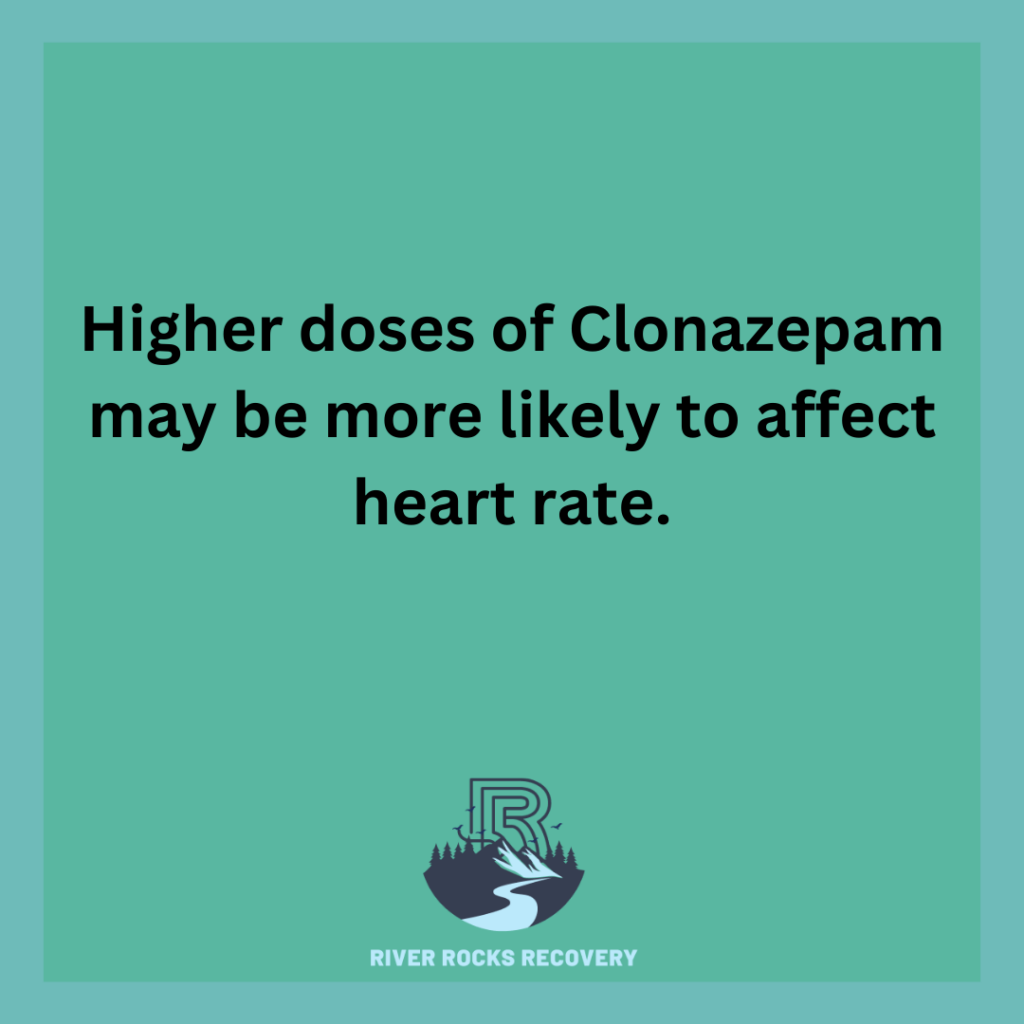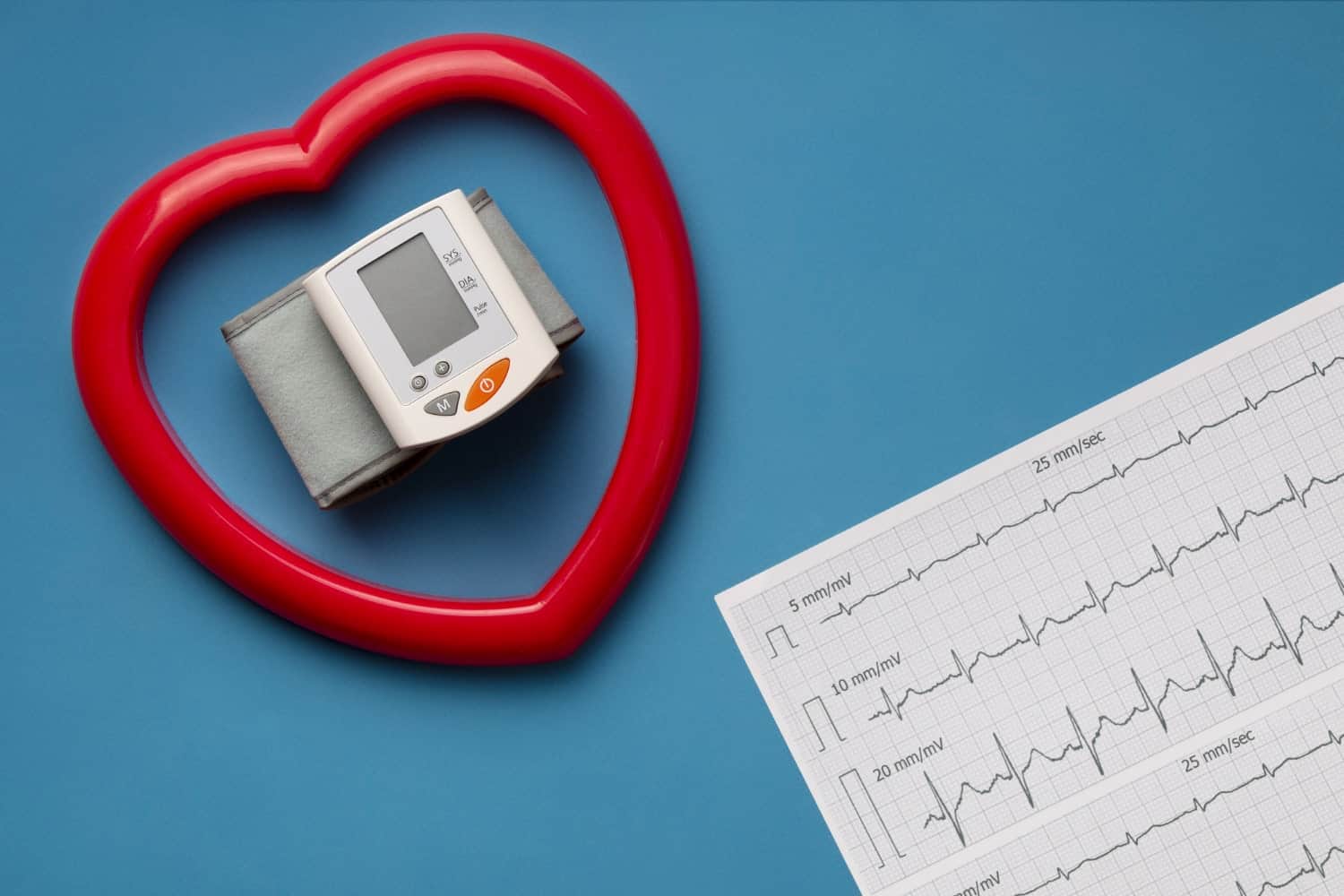Clonazepam is often known by the brand name Klonopin. It is a medicine that is frequently taken to treat anxiety, panic disorders, and some forms of seizures. While it is beneficial in treating these illnesses, some users and healthcare professionals have expressed concerns about potential adverse effects, such as the influence on heart rate.
In this blog post, we will learn how Clonazepam causes an increase in heart rate, what the risks are, and what you should know if you’re using this medicine. So, let’s go!
Understanding Clonazepam and How It Works
Clonazepam is a benzodiazepine that works by boosting the effects of gamma-aminobutyric acid (GABA) in the brain. GABA calms the neurological system, reducing anxiety and preventing seizures. While clonazepam is useful in treating these disorders, its interaction with the nervous system can cause a variety of negative effects, including those affecting cardiovascular health.
The Relationship between Clonazepam and Heart Rate
1. Direct effects on Heart Rate
Clonazepam is well-known for its calming properties, which can slow down body activities such as heart rate. However, in certain situations, users may suffer an increase in heart rate, especially during the early phases of treatment or when the dosage is altered. This paradoxical reaction is uncommon, but it can occur, particularly in people who are sensitive to the medicine or have underlying cardiovascular issues.
2. Anxiety and Panic Disorder
Clonazepam is primarily used to treat anxiety and panic disorders, both of which can result in an accelerated heart rate as part of the body’s fight-or-flight reaction. When Clonazepam efficiently relieves anxiety, it may indirectly lower a fast heart rate. However, in certain situations, particularly after the medicine wears off or during withdrawal, a rebound effect may occur, causing increased anxiety and, as a result, a quicker heart rate.
3. Withdrawal Symptoms
If you have been using Clonazepam for a long time and decide to discontinue or modify your dosage, withdrawal symptoms may include an increase in heart rate. This is one of several symptoms that appear as the body adjusts to the lack of the drug. Tapering off Clonazepam under medical supervision is critical for reducing withdrawal symptoms, particularly cardiovascular complications.

The Risk Associated With Clonazepam
Tachycardia, or an increased heart rate, can be problematic if it persists or is accompanied by other symptoms like chest pain, dizziness, or shortness of breath. Persistent tachycardia can strain the heart over time, resulting in more serious cardiovascular problems. While clonazepam is not known to cause long-term heart rate increases, any changes in heart function should be constantly monitored.
How to Control Your Increased Heart Rate?
If you notice, your heart rate is increasing, perform the following remedies:
- If you notice a rise in your heart rate while taking Clonazepam, you should keep track of your symptoms. Please notice when the changes happen, how long they continue, and if they are supplemented by any other symptoms like anxiety, palpitations, or dizziness.
- Discuss any concerns you have about your heart rate with your healthcare professional. They can assess your symptoms in terms of the amount of Clonazepam, and any other medications you may be using. Your doctor may change your dosage, prescribe a new medicine, or order more tests to evaluate your cardiovascular condition.
- If you feel Clonazepam is impacting your heart rate, do not discontinue the drug abruptly. Sudden discontinuation might cause withdrawal symptoms, such as an increase in heart rate and anxiety. Instead, consult with your doctor to gradually reduce your dosage if needed.
Finding Professional Help? Connect River Rocks Recovery!
River Rocks Recovery offers a range of addiction treatment programs tailored to meet the individual needs of our clients. Our programs are designed to provide a safe and supportive environment for individuals seeking to overcome substance abuse and achieve lasting recovery.
Our addiction therapy programs are based on evidence-based therapies and a holistic approach to recovery. We address the physical, emotional, and psychological aspects of addiction to ensure long-term success.
River Rocks Recovery is committed to providing the highest quality of care to our clients. Our team of experienced professionals is dedicated to your success and will work tirelessly to help you achieve your recovery goals.
If you are concerned about your heart rate or other negative effects while taking Clonazepam, get professional advice from River Rocks Recovery! Our support groups and addiction treatment plans can help you get back on the track stress-free. Contact us today to learn more about our addiction treatment programs or to schedule a consultation. Book your appointment today!
FAQs: Clonazepam and Heart Rate
How does Clonazepam work?
Clonazepam enhances the effects of gamma-aminobutyric acid (GABA), a neurotransmitter that promotes relaxation and sedation.
Can Clonazepam slow down your heart rate?
Yes, Clonazepam can slow down your heart rate. This is because it enhances the effects of GABA, which can decrease the activity of the sympathetic nervous system, which controls the heart rate.
What is a normal heart rate?
A normal resting heart rate for adults is typically between 60 and 100 beats per minute.
When should I be concerned about a slow heart rate while taking Clonazepam?
If you experience a heart rate that is consistently below 60 beats per minute or if you have other symptoms such as dizziness, fainting, or shortness of breath, it is important to talk to your doctor.
Should I stop taking Clonazepam if my heart rate is too slow?
Do not stop taking Clonazepam suddenly without talking to your doctor. Stopping the medication abruptly can cause withdrawal symptoms. Your doctor may recommend gradually reducing your dosage.
When should I see a doctor about a slow heart rate while taking Clonazepam?
If you experience a heart rate that is consistently below 60 beats per minute or if you have other symptoms such as dizziness, fainting, or shortness of breath, it is important to see your doctor.

